ソニーCSLの公開オープンハウスでSynecocultureプロジェクトの紹介を行いました。
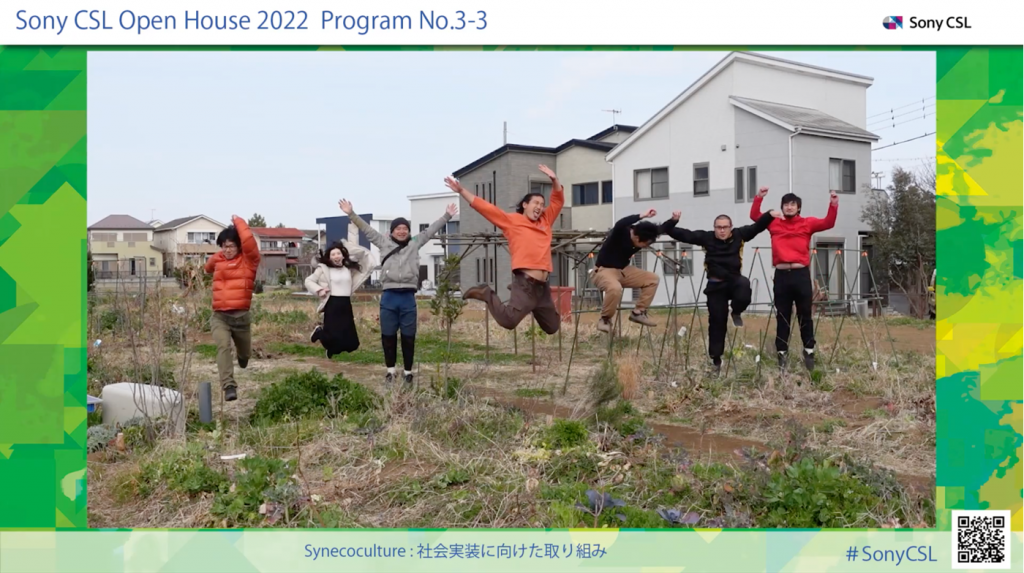
The following two papers were published:
・Masatoshi Funabashi and Tomoyuki Minami “Dynamical assessment of aboveground and underground biodiversity with supportive AI” Measurement: Sensors Volume 18, December 2021, 100167 https://doi.org/10.1016/j.measen.2021.100167
・Kousaku Ohta and Masatoshi Funabashi “Complementary analyses of soil microbial and chemical properties and human observation on augmented ecosystems in urban environment” Measurement: Sensors Volume 18, December 2021, 100333 https://doi.org/10.1016/j.measen.2021.100333
The following two papers were presented at XXIII IMEKO World Congress (IMEKO2021):
-Masatoshi Funabashi and Tomoyuki Minami, “Dynamical Assessment of Aboveground and Underground Biodiversity with Supportive AI”
-Kousaku Ohta and Masatoshi Funabashi, “Complementary Analyses of Soil Microbial and Chemical Properties and Human Observation on Augmented Ecosystems in Urban Environment”
Sony CSLより青竹峻太郎・舩橋真俊が参画した、協生農法に関する早稲田大学との共同研究について、以下の通り学会発表を行いました。
2021 年度 第 49 回画像電子学会年次大会
Media Computing Conference 2021
https://www.iieej.org/annualconf/2021nenji-top/
6月26日(土)
●16:00-16:45 学生セッション(S7) 3件 「動物」 (15分/件) 座長:森谷友昭(東京電機大学)
【S7-3】協生農法環境におけるRGB画像からの圃場の優勢植生の深層学習を用いる検出方法に関する研究
〇征矢寛汰(早稲田大学) , 青竹峻太郎(早稲田大学/ソニーコンヒ゜ュータサイエンス研究所), 小方博之(早稲田大学/成蹊大学), 大谷 淳, 大谷拓也, 高西淳夫(早稲田大学), 舩橋真俊(ソニーコンヒ゜ュータサイエンス研究所)
●16:55-17:40 学生セッション(S8) 3件 「動物」 (15分/件) 座長:小林直樹(埼玉医科大学)
【S8-2】協生農法環境におけるRGB画像に対するSemantic Segmentationを用いた圃場の被覆状態の認識方法に関する研究
〇吉崎玲奈(早稲田大学) , 青竹峻太郎(早稲田大学/ソニーコンヒ゜ュータサイエンス研究所), 小方博之(早稲田大学/成蹊大学), 大谷 淳, 大谷拓也, 高西淳夫(早稲田大学), 舩橋真俊(ソニーコンヒ゜ュータサイエンス研究所)
——————————
English :
The Institute of Image Electronics Engineers of Japan(IIEEJ)
Media Computing Conference 2021
6/26
Student Session(S7) “Animal Session”
●【S7-3】 Study of a method for detecting dominant vegetation in a field from RGB images using deep learning in Synecoculture environment
〇Kanta SOYA*1, Shuntaro AOTAKE*2/*3, Hiroyuki Ogata*4/*5, Jun OHYA*6, Takuya OHTANI*7, Atsuo TAKANISHI*6, Masatoshi FUNABASHI*3
*1 Dept. of Modern Mechanical Engineering, WASEDA University, *2 Dept. of Advanced Science and Engineering, WASEDA University, *3 Sony Computer Science Laboratories, Inc, *4 Waseda University, Future Robotics Organization, *5 Dept. of System Design, SEIKEI University, *6 Dept. of Modern Mechanical Engineering, WASEDA University, *7 Waseda Research Institute for Science and Engineering
Student Session(S8) ”Animal Session”
●【S8-2】 Study of a Method for Recognizing Field Covering Situation by Applying Semantic Segmentation to RGB Images in Synecoculture Environment
〇Reina YOSHIZAKI1,Shuntaro AOTAKE2,3,Hiroyuki OGATA4,5,Jun OHYA1,Takuya OHTANI6,Atsuo TAKANISHI1,Masatoshi FUNABASHI3
1 Graduate School of Creative Science and Engineering, Waseda University,2 Graduate School of Advanced Science and Engineering, Waseda University,3 Sony Computer Science Laboratories, Inc.,4 Faculty of Science and Technology, Seikei University,5 Waseda University, Future Robotics Organization,6 Waseda Research Institute for Science and Engineering
Un ouvrage issu d’un colloque de Cerisy (2017) est publié d’Éditions Hermann, dans lequel Masatoshi Funabashi a contribué un chapître “La gestion agro-environnementale: Les atouts de la synécoculture.”
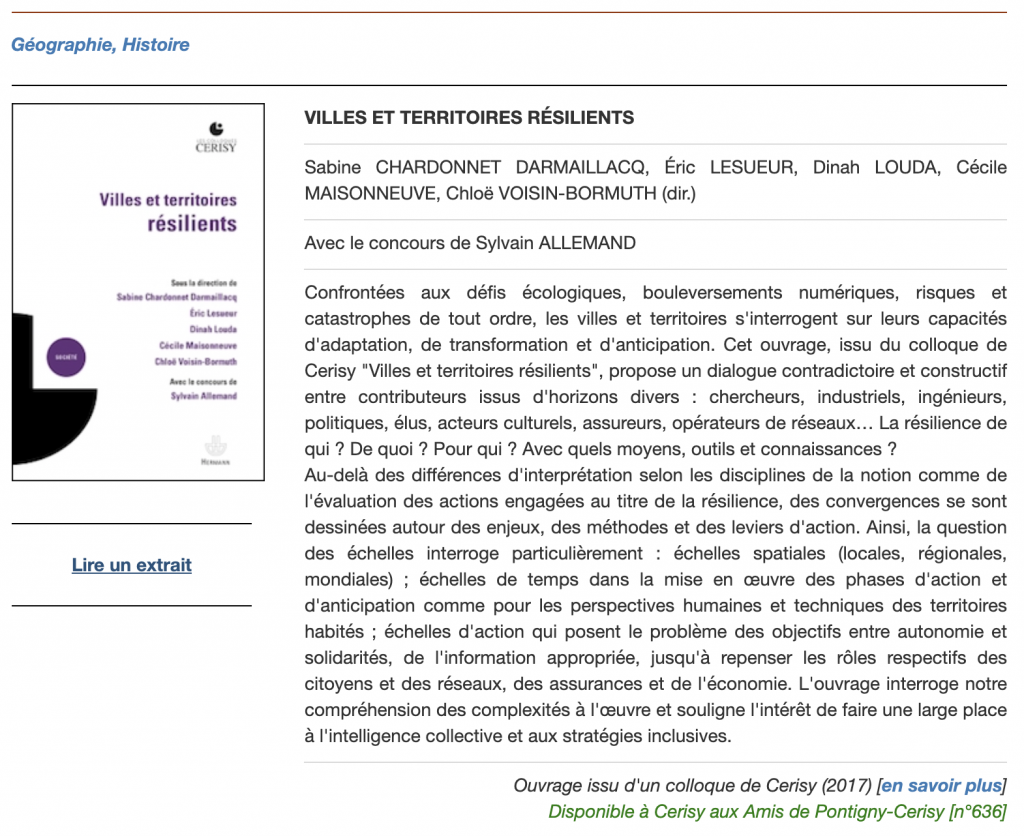
An article on Synecoculture appeared in Sony’s Technology 2020, a special issue on the technology of Sony’s in-house magazine “Sony Family.”
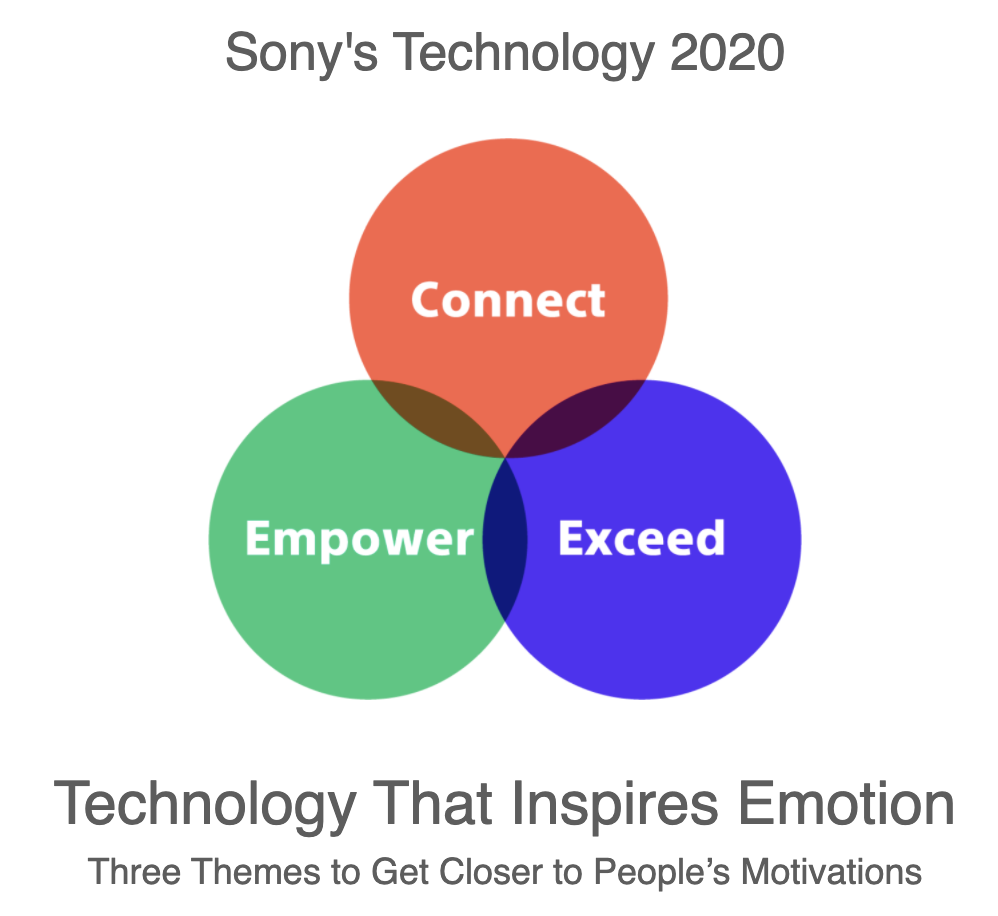
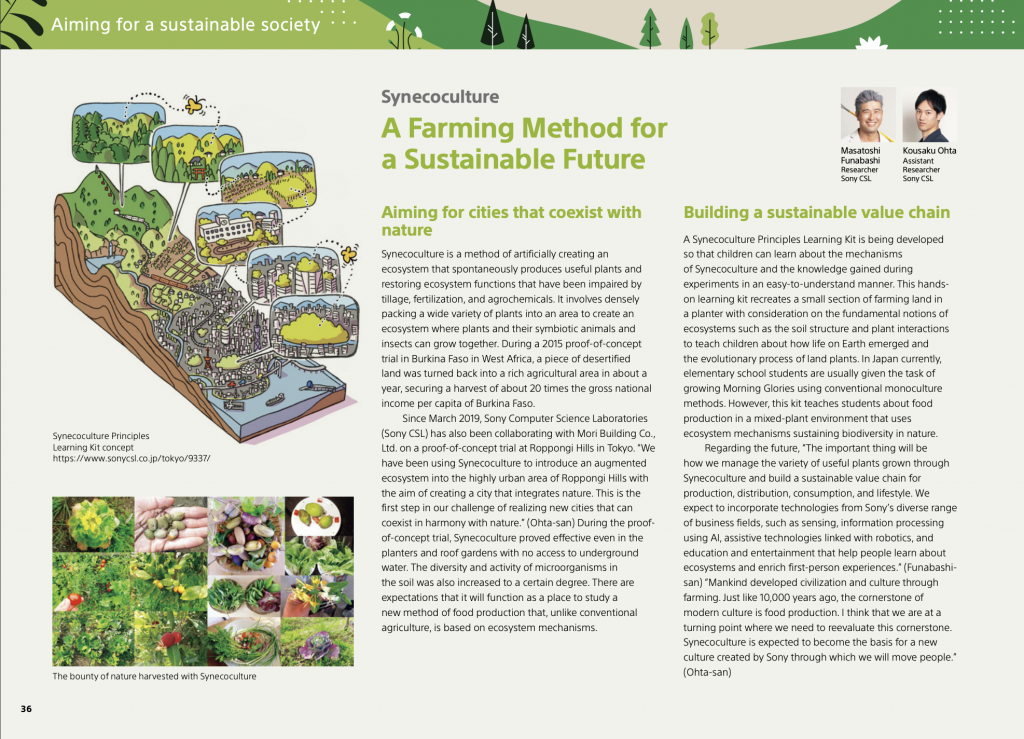
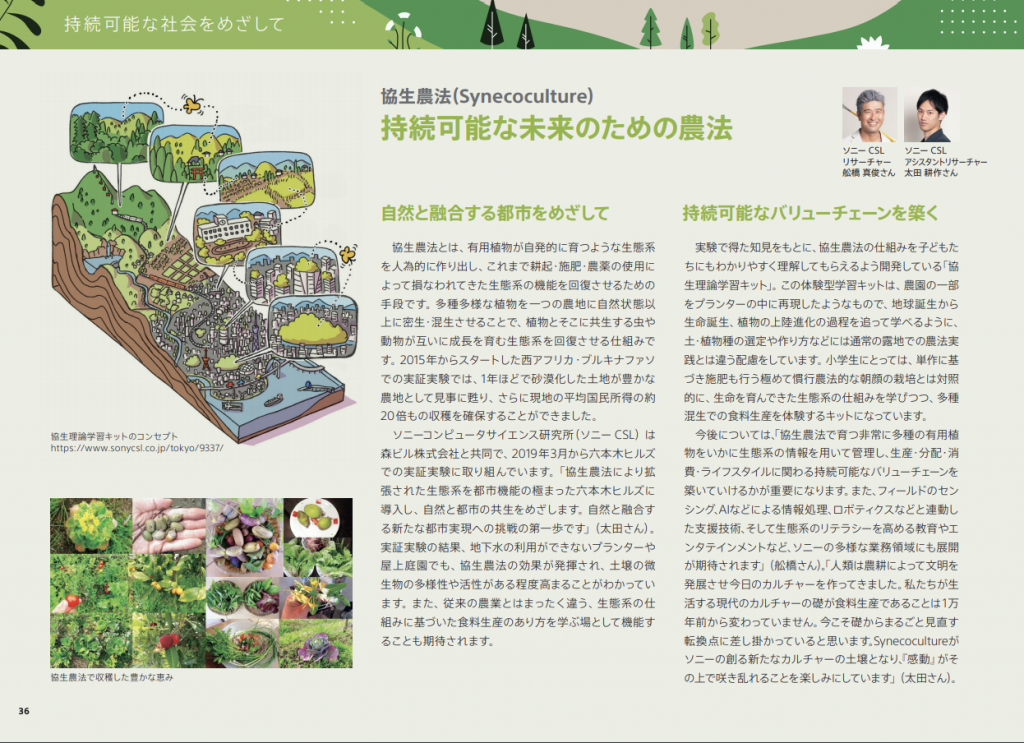
A short movie on Synecoculture and MMS is online, which was prepared for the FAO Global Symposium on Soil Biodiversity (GSOBI20) that is postponed for the moment.
Synecoculture project team in SonyCSL has published online interactive graph interfaces of the useful plant databases, jointly constructed with CARFS and Université de Ouagadougou 1.
Click images to access interactive graph interfaces:


The database comprises 837 useful plant species collected from existing literature on the vegetation of the Sahel (shown with blue nodes) in collaboration with CARFS and Université de Ouagadougou 1.
Using the GloBI database, 15396 plant and animal species in total were detected (shown with green nodes) for having known biological interactions on 629 of these 837 species.